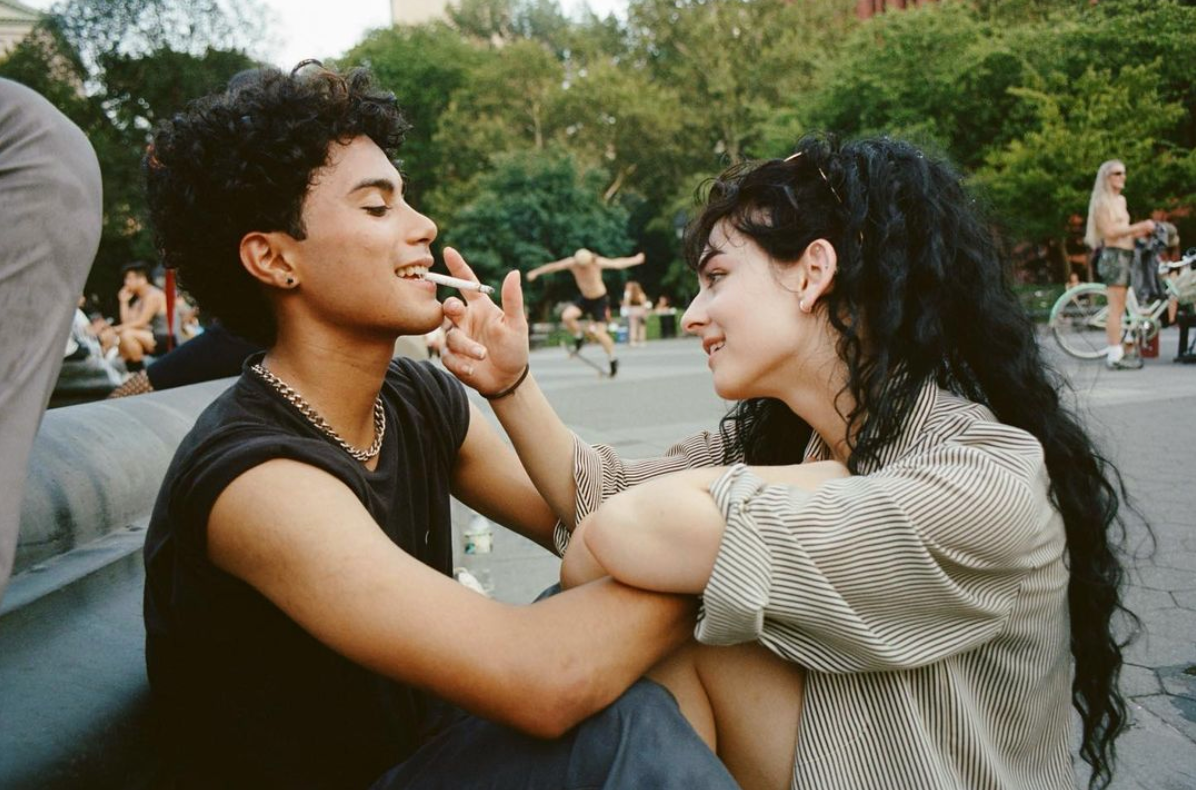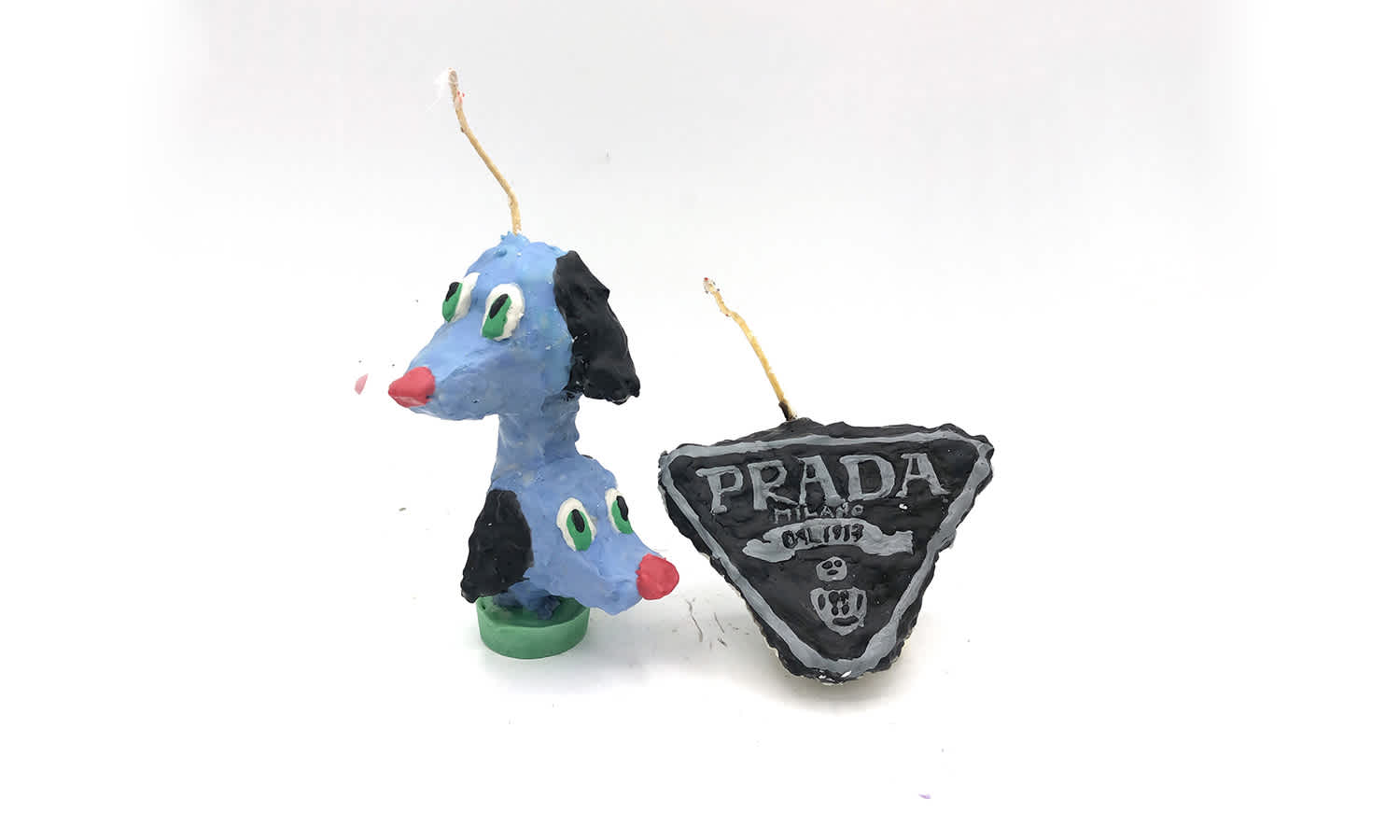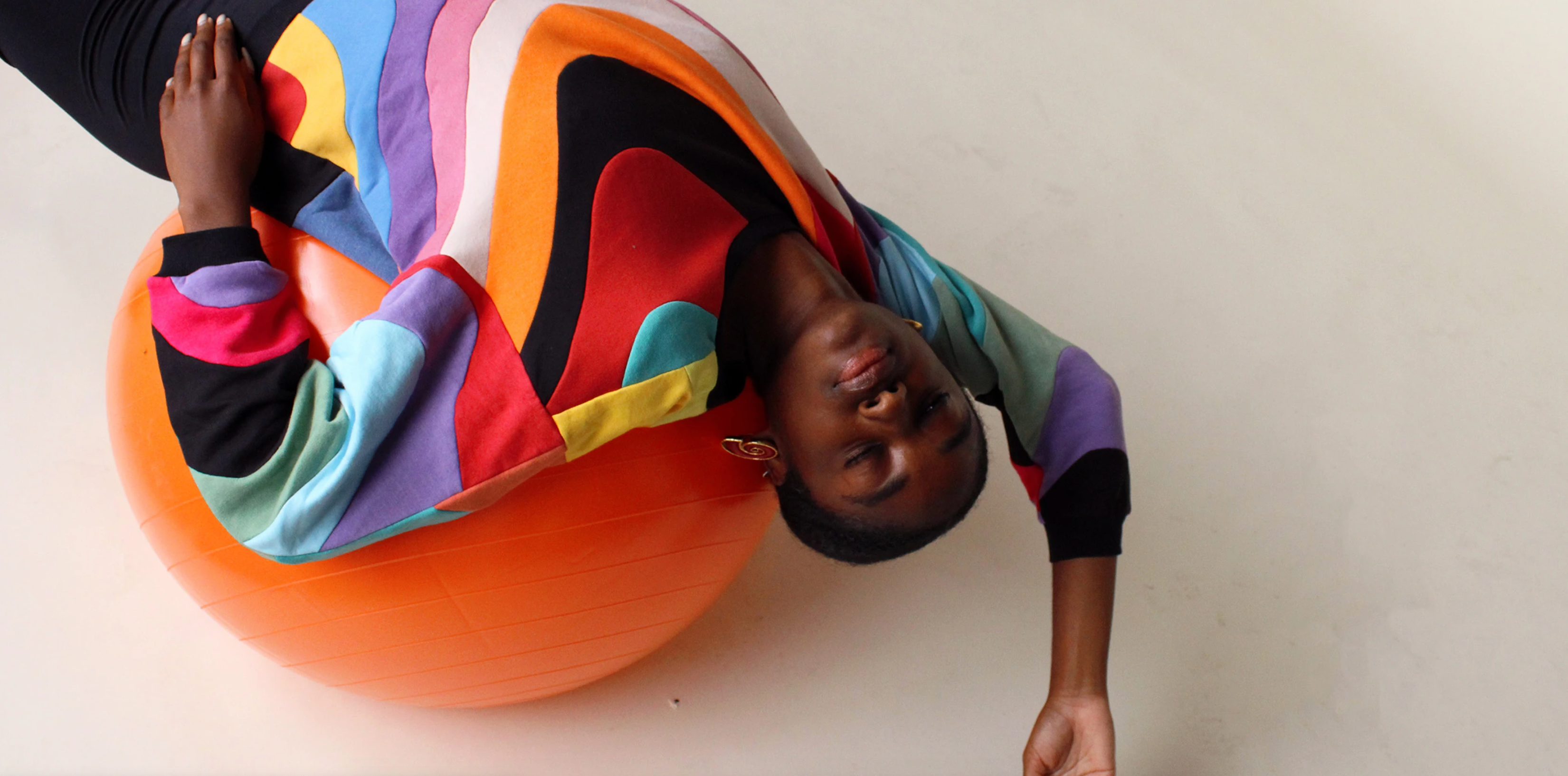
Daniel Arnold is a prolific artist with a cult instagram following and work published in varsity publications like Vogue, The New York Times, and the New Yorker. Daniel Arnold’s first New York show, 1:21, is open at the Larrie gallery in Chinatown from October 13th to November 24th.
The first time I heard the name Daniel Arnold was in the backroom of a now forgotten Brooklyn bar. It was one of my first Friday night’s in New York that actually felt like a Friday Night in New York. A forgotten stranger reaches his phone across the three-legged wooden table to show me Arnold’s work as if he’s showing me a personal excerpt from his diary. The stranger opened the floodgates to a world of almost-missed New York moments that Arnold seemingly catches with ease. I don’t remember many details from the night, but Arnold’s work remains ingrained in my infant New York memory.
I met Daniel outside an Italian speciality shop in Chinatown thinking it was his gallery space, Larrie. Once we moved to the proper location next door, we made a makeshift interview space next to the bright window in the storefront. Daniel sat across from me on a turned over make-shift wooden stool and I saw next to what I believe was a trash bag filled to the brim with glass ready to discuss the world according to Daniel Arnold.
Q: So you majored in English and minored in film. What is your relationship to story?
Daniel: It’s the whole thing. I think — not that I’ve said this out loud or anything — but for the sake of spontaneous conversation, I feel like the distinction between us and the animals could be boiled down to story. There are far more points to it, but [story] is the processing of the world. Since I was a little kid, I have been kind of obsessed with folktales. I only noticed this recently because I started talking a lot to a new person, and when you talk to a new person you find out what you talk about. I kept finding myself referencing some weird folktale. It’s a hard question to answer because “story” is so everything. Q: During my research, I noticed that the word you use most to describe your work is story.
Daniel: That I didn’t know.
Q: Do you ever think of backstories for the subjects you shoot?
Daniel: Yeah, but it’s rarer than you might think. I think most of the storymaking happens in the edit. I’m a pretty conservative shooter, so it’s not that I’m out there, as they say, “spraying and praying.” I’ve been doing [photography] exhaustively for so long, and I have a hard time getting through a roll of 36 shots.
I think that the story thing is so built-in that it kind of mindlessly attracts me. I feel like I’m seeped in story. It’s an exotic claim, but it feels true. It’s like language. Once you know a language, you can’t see a word anymore without knowing what it means. Just like I know what a word means, I know where to point the camera. It’s like instinct. You see something without taking the time to put the pieces together. A lot of the time when I’m shooting, I don’t even look. I just feel there’s a hotspot and kind of just know where to point the camera. I don’t want to interrupt it, so a lot of the time I look away. Everytime I do it, I’m like, “Why the fuck did you do that?” And it’s not fearful— like I don’t mind getting the camera and pointing at somebody— but for whatever reason, that is the process that I have evolved. I try to make a picture of a world that only mentions me as an editor.
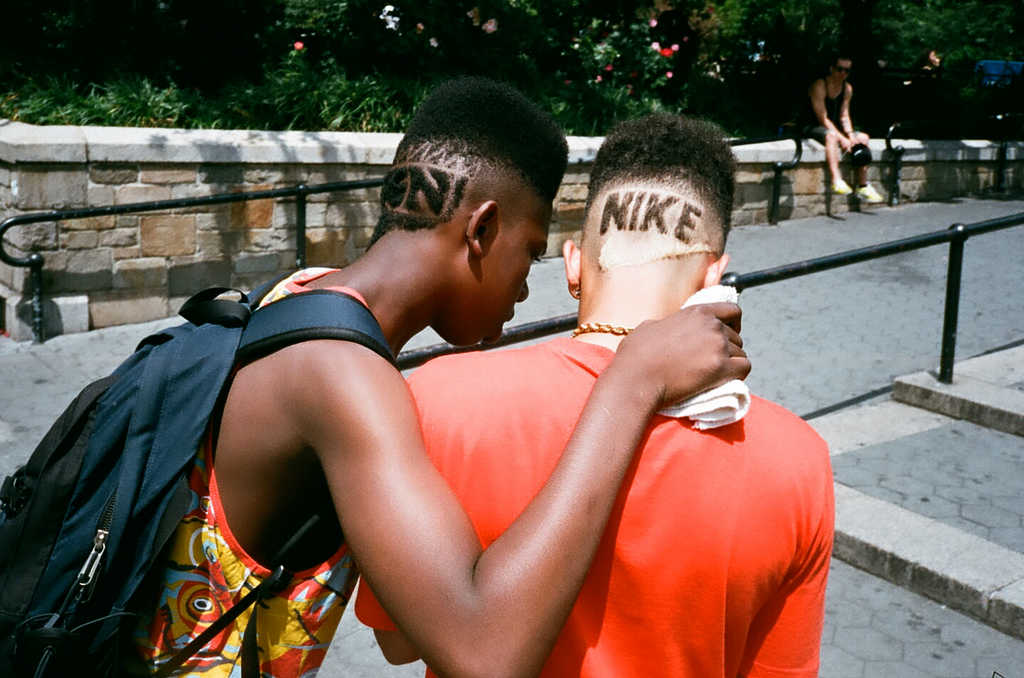
Q: Do you feel like you’re an introvert or an extrovert?
Daniel: There is a distinct introvert in me. I think that the extrovert path of me is a consequence of me being this creature of duty, almost like a servant. I love to be a good employee. I love to make people comfortable, yet it’s also self-servant. I tend to my own comfort by making the world around me comfortable. And I think in that way, I’m just like sort of de facto extrovert. I know how to do it.
So I guess it’s this constant attempt at balance like anybody else. I have this built in nature to get in my hood, to be comfortable, and to calculate. There is also this other half of me that’s like, “I hate this idiot. I hate this cautious bundled up guy.”
I didn’t mean for this to happen, and I didn’t even notice this until further down the line, but the photo thing— just holding a camera— it’s kind of this great mirror between these two worlds. You know, there is a certain hiding place behind the camera, but it also makes me braver and makes me hungry for a certain level of experience. It makes me more desirous of the world, of risk and craziness. [Photography] is kind of this perfect key to escaping parts of me that dis-sastisify me.
Q: As a writer and photographer, you’re the person with all the agency. When you flip roles and you’re in front of the camera, do you feel like you self-edit?
Daniel: I try to distract myself. It’s kind of the same as the way that I work. Where like— I mean it’s another question: What’s your relationship to inauthenticity? It’s a defining thing, and the answer to that goes all the way to the bottom where part of the reason I had to stop being a writer is that I couldn't find any way that writing wasn't a presentation of myself. But photo still is that, especially in an Instagram world. I’d be insane to say that I’m not presenting myself. I’m performing myself. I think the whole practice is rooted in that problem where I go out and perform the street photographer. If I look for my photos, I’ll make garbage. And there’s plenty of times where that happens. I have to constantly come up with new tricks and wormholes and glitches to get myself back to where I can work with a fearful brain, I guess. So I can work on instinct and not on pride, or whatever the opposite is.
Q: In one piece that I was reading, someone said that your work is synonymous with New York. How do you feel about that?
Daniel: I don’t know about synonymous but it’s definitely meaningful that New York is the center of my practice. I mean, I have lived here for sixteen years, which is almost half my life because I’m 39. I have always had a very romantic, toxic, enriching, life-defining relationship with the city. And as much as I want to resist any classification, as any person would, it is nice for me that lately the city has a relationship back with me.
I’m hyper-self aware going through the world imposing myself on a ton of people around me. I make constant, involuntary contemplations about how that relates to me and what it says about what I know about myself. I would not know the world— I would certainly not know people— the way that I do— without my time in New York. My understanding of people is completely contingent on being in a place where I’m stacked on top of every kind of person all day. I feel very excited to be in a place like [New York]. I think it’s fair to say that there is some defining New York energy to my practice or at least to my engagement with the world. So, synonymous with New York? Yeah, in that way, sure.
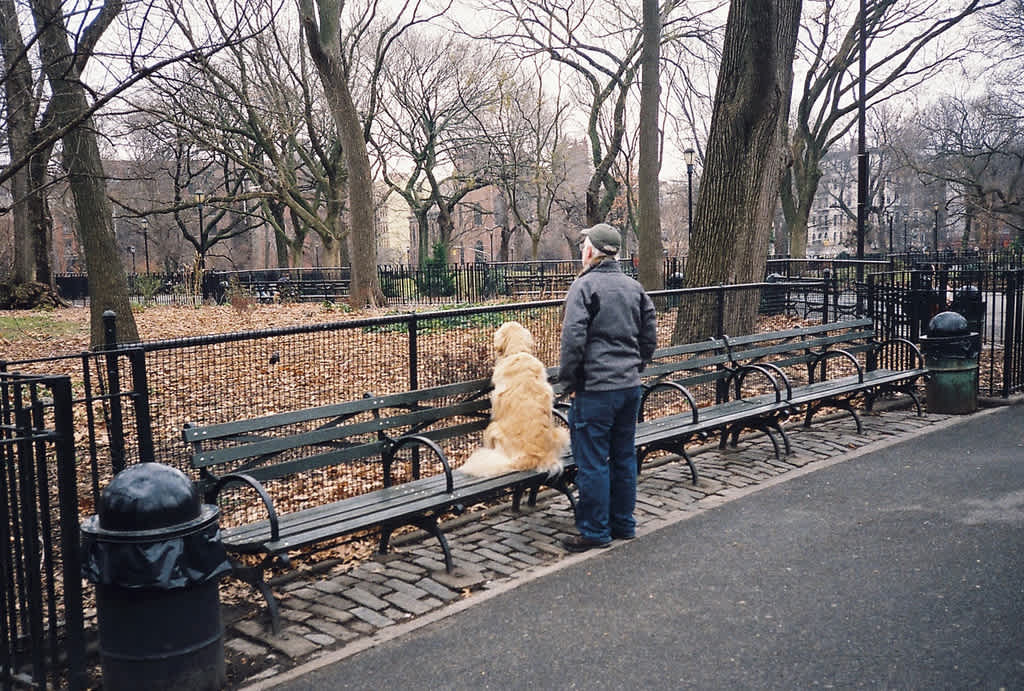
Q: So what work is going to be in your show?
Daniel: This show is just work from the summer, so no greatest hits. It’s mostly unseen, and it’s my first show in New York. I’ve done shows in the past, a few times, in other cities. In the absence of being able to tolerate the idea of “greatest hits”, like ten days before some shows, I’ll go walk 100 miles, edit, print and hang what I shot. It’s an act of performance in a way. It becomes this act of performance art. I went and did the shit out of this thing and broke my body and exhausted myself. It’s like an accurately representative microcosm of the bigger thing, which is abusive and relentless and hopefully exhausting to the point of cognitive collapse so I can just be this vessel thing, not to get grandiose. I try to be the thinking brain. What question am I even answering, do you remember?
Q: I asked what the show–
Daniel: Oh the show! So, this show is called 1:21. I have an alarm every day that goes off at 1:21. I have a few alarms at arbitrary times.
Q: Why?
Daniel: I guess to wake me up. I mean there are other reasons, too. In many ways, the whole world is designed to distract you. It’s designed to make it hard for you to think about what’s actually going on, harder for you to know that your body is this little piece of garbage on this giant rock. So, I have these alarms everyday, and I decided that this is what these alarms mean. Pay attention. Snap out of it. Remember you’re this stupid thing and that everybody else is too. Don’t be fooled by it. Don’t be romanced by it. Bother to see it. Bother to be in it. Bother to let it in.
There’s an app that reminds you that everyday that you’re going to die.
Daniel: Oh really? That’s not so horrible. And so, [the alarms] are one factor to the show. And there’s also the factor that I had a very manic kind of year. Very like starry-eyed in the story, heart pounding also of course anxious - is there a word for this? *Daniel shakes his hands up and down* You know? It was a very full year. Very emotional year. Very uncommonly, sustainedly, crazy year internally.
Q: Outside of your creative outlets, how do you get through that mix of emotions?
Daniel: I didn’t try too. What happened was I woke up every morning and was like, “Damn, you still have this crazy fucking brain. Take it outside.” I guess I’m decent enough in this exercise where when I go back into [my] archives and find random photos— I’ll be eight years back, on some day that I couldn’t tell you a goddamn thing about— and I remember exactly how I felt.
Before I really knew what the [1:21] show was going to be— because it went through a million different branches— I thought I was going to show pictures from Brazil. But I was going through this thing internally where I would wake up every day and be like, “Get this fucking brain outside. Go make your like secret coded fossil of your feelings.”
As I wrestled with what to do with this show, I was making the work. And I was making the work without much analysis. I didn’t really try to read anything into it. I just knew that I was making proof of something I didn’t understand yet. Then during that time, while I was still manic, I started watching this exhaustive nine-part documentary on the history of New York. While I was watching it, I found out a simple thing, and I’m an idiot for not knowing this. Walt Whitman is from Long Island, and Leaves of Grass is about Manhattan. That was such a plot twist in my head, where in my idiot, liberal-arts-education, half-paid-attention, stoner brain, Walt Whitman is inextricable from Thoreau and Emmerson. The fact that Walt Whitman is from Long Island and Leaves of Grass is about Manhattan is like what the fuck? Like that’s what I’m doing. I’m leading you down a rabbit hole.
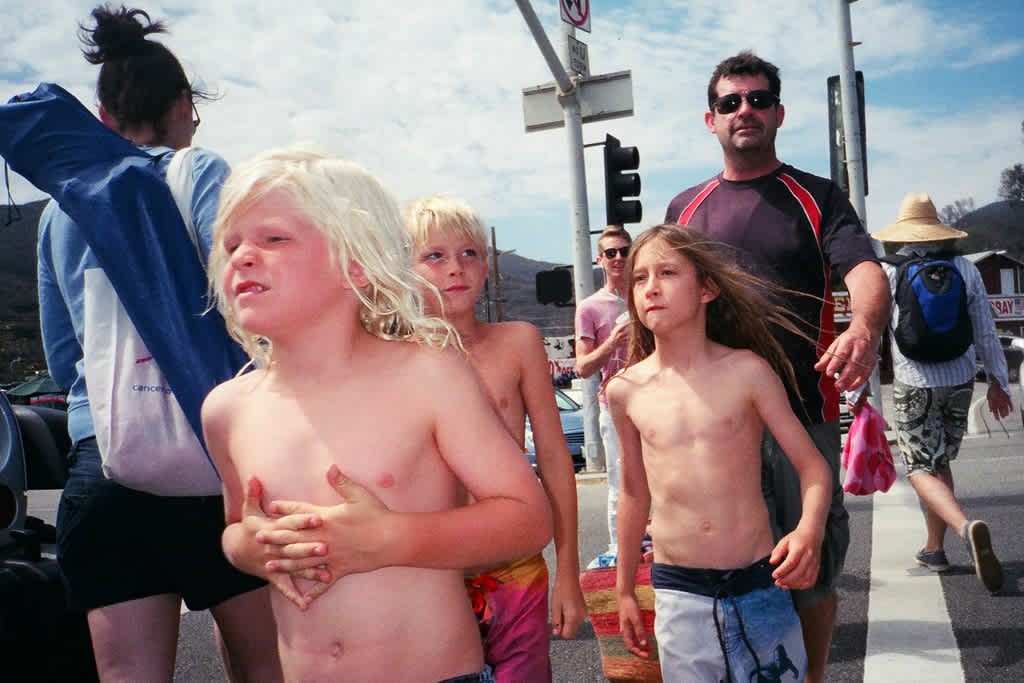
Q: I’ll include a chart. Can you talk a little more about this Walt Whitman realization?
Daniel: I have had this thing forever in my head about Walt Whitman, who I knew nothing about apparently. But I heard at some point— this is total prayer of a paraphrase— but something to the effect of, “Success is isolating like specialization is isolating. If you’re going to make a worthwhile effort that enriches your life, the thing to do is to find the language that let’s you sing whatever you fucking want.” So that’s been in my head forever, and it’s been in my head in terms of my work forever. When I saw the Walt Whitman thing, it was this instantaneous explosion like, fuck that’s a crazy connection.
The next day was the hottest day of the summer, it was like 110 degrees. I was like, “I wonder if there is a Walt Whitman museum.” And before I even got to the end of that thought, I was like, “Yeah, dipshit, there's a museum on Walt Whitman.” I ditched the idea before I even finished thinking it. Then I was out the next day getting roasted, and I was up by the Morgan Library. I was like, “Hey, I bet that place is cold,” so I jump into the Morgan Library, and the exhibit is Walt Whitman. There was all this shit about how Walt Whitman was really inspired by photography. So in my state that was already manic— I wasn’t like having an episode or anything, I was just like super tuned in— I’m like, “How can this chain of events be real?” I will say, if you have the great priviledge as I do to kind of let your life be totally unstructured and be a total wanderer where you can just pay attention to everything everyday, the world is cosmic as fuck. It’s just like coincidence city all day everyday. So, I get on that Walt Whitman trip big time.
Q: So this is your first New York show, can you talk about what that feels like?
Daniel: There’s a pressure and preciousness about [my] first New York show. I come into this from a non-traditional angle. You know, New York is fucking dripping with photograhers. Photography is often this very studied path, industry bound. You pay your dues, go to school, assist, blah blah blah, and I just kind of woke up into somebody else's dream. My instinct very often is to try to cram this sort of new amorphous discovery into the old box. And I did; I worked for a magazine, got a commercial job. You know, that’s about as far as I can get.
I resisted this [having a gallery show] because of a build up of over calculation and preciousness. Finally, when I had that sort of Walt Whitman maelstrom, I was like, “Actually, this is so perfectly suited to be this small, close to the ground with my friends, unproven, past-three-months-mania, confession show. So everything just kind of lined up as I would want it to.
As much as I did not mean to get here, I would not be here if not for my curator, Emily Rosser, who started out as my Vogue editor. She needled me and needled me and pushed me and prodded me, and I was so resistant. I was like, ‘Yeah. Maybe I’ll do a show,” but never meant that I was going to do it. Anyhow, Becky who runs the [show] space was also a friend of mine who was so accommodating and so enthusiastic.
I guess all I’m saying is I would not have known how to set out to have this show, which feels to me, perfectly me. I got here in a total confused panic. And when I finally put my foot down it was like this makes perfect sense. So, there’s that.
Q: What was the process of selecting this specific body of work?
Daniel: I still didn’t know if they worked as a body. I for sure feel proud of my summer, and these photos were just such a small part of it, too. There are all these bodies of work from the summer, but this one feels— I don't know— it feels like its own thing. I tried to incorporate other work. I had work that felt more directly related to the sort of imposed, conceptual thing. This work I did in Brazil in the Spring where it was fucking crazy. I was in Rio for Carnival, and I was told that if I wanted to not be mugged just to not bring any clothes. Because I was being hosted by a stylist, she would just dress me and make me look like a local. So I was in Rio, left to my own devices with no help, no direction in a replacement wardrobe with sequined mermaid shorts and floral jumpsuits and...
Q: Are there photos?
Daniel: Oh yeah. There’s a whole body of work that I’ve never shown and I don’t know what to do with.
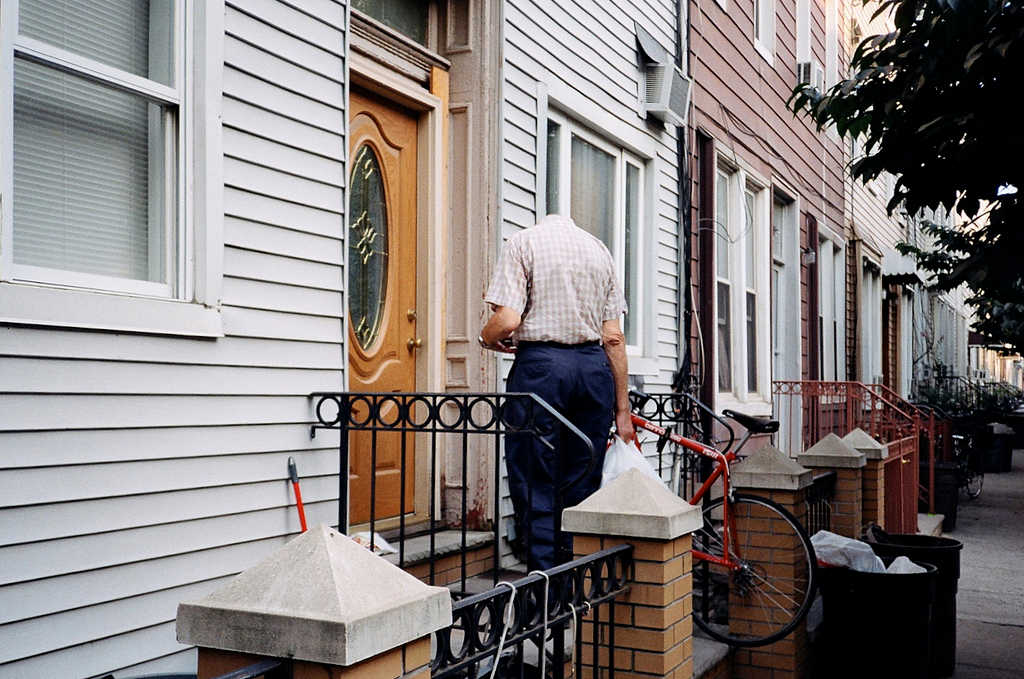
Q: No, I mean, are there photos of you?
Daniel: Oh! Yeah. There’s one or two. There should be more. But, there is all this work [from there] that more directly demonstrated the subtext that I’m getting at. But the work [in the show] is unproven and super amorphous, and that feels truer to the exercise of like this job of seeking vulnerability.
I had a moment the other day after a big surge of confidence. I saw prints, the space was coming together, and we’re making a 300 page book that is looking really cool. Then, I got hit with like an arrow to the gut of doubt and embarrassment. I had done a few interviews, and I started to feel really embarrassed to the point of like a bad feeling. Like a too stoned kind of feeling. Like what is my whole life? Then, I corrected that by realizing there couldn't be a better sign. Even if I’m right to be embarrassed, even if I make a fool of myself, I think the vulnerability of the exercise justifies the exercise.
Absolutely.
Daniel: And so, I am in nervous territory. And I’m excited about it. It feels true to the story. And that’s that.
Q: When did you start having a positive or any type of relationship with trying to be more vulnerable?
Daniel: I don’t know that it’s positive or negative. I mean it feels deeply negative. I mean the first thing is I was like a very fearful little kid, which is extra embarrassing since I’m the oldest of six kids. Of course, my next brother in line is like fearless and always had a broken arm. I was scared to death of Freddy Krueger, mice, bugs, blah blah blah, and my mom would like— not in a malicious way— but she would just like rub my face in it. She’d get a bug in a napkin and just like push it in my face and crunch it up so I could hear it breaking. *Daniel gets up and squishes his fingers inches from my face mimicking his mother* She told me she knew a song that she could sing that would make mice come dancing out of the wall. She made me watch all the Nightmare on Elm Street movies.
Q: Immersive therapy?
Daniel: Yeah. Immersive therapy slash convenient mythology.
Right.
Daniel: But it does fit that I ended up being a person who— I don’t know— my reaction to discomfort is: Okay, how uncomfortable could it get?
Daniel Arnold’s first New York show, 1:21, is open at the Larrie gallery in Chinatown from October 13th to November 24th
